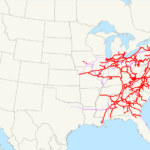Deaths of over 16,000 older adults could have been avoided with better treatment allocation
- Medicare patients at highest risk of severe COVID-19 were less likely to receive treatment
- Less than 5% of high-risk patients received outpatient COVID treatment
- Patients aged 90 and older were less likely to receive treatment despite higher hospitalization rates
- Nursing home residents and lower-income individuals were treated at lower rates
- Deaths of over 16,500 older adults and 10,000 hospitalizations could have been avoided with better treatment allocation
- Healthcare providers need to investigate patterns of care and address treatment roadblocks for vulnerable patients
- Antiviral drugs should be considered for patients with mild to moderate COVID and risk factors for severe infection
- White patients were more likely than Black or Hispanic patients to receive treatment
- Access to telehealth may explain some treatment gaps
- More than 40% of patients who received treatment were not diagnosed with COVID at the time
Medicare patients who were at the highest risk of severe COVID-19 infections were less likely to receive treatment, according to a study published in JAMA Health Forum. Less than 5% of high-risk patients received outpatient COVID treatment, compared to 7.5% of low-risk patients. Patients aged 90 and older, nursing home residents, lower-income individuals, and rural residents were all treated at lower rates. The study found that reallocating COVID treatments based on patients’ risk could have prevented the deaths of over 16,500 older adults and over 10,000 hospitalizations. Healthcare providers need to investigate patterns of care and address treatment roadblocks for vulnerable patients. Antiviral drugs should be considered for patients with mild to moderate COVID and risk factors for severe infection. Disparities in treatment were also observed based on race, with white patients more likely to receive treatment than Black or Hispanic patients. Access to telehealth may explain some treatment gaps, as patients who used telehealth were more likely to receive treatment. It is important to note that over 40% of patients who received treatment were not diagnosed with COVID at the time. Overall, the study highlights the need for better allocation of COVID treatments to ensure that the most vulnerable patients receive the care they need.
Public Companies: Pfizer Inc. (PFE), Merck & Co. Inc. (MRK), Gilead Sciences Inc. (GILD)
Private Companies:
Key People: Andrew Wilcock (lead author of the study and a health services researcher at Harvard Medical School)
Factuality Level: 7
Justification: The article provides information from a study published in JAMA Health Forum that shows Medicare patients at high risk of severe COVID-19 infections were less likely to receive treatments. The article includes quotes from the lead author of the study and references other research findings. However, the article does not provide a balanced perspective or include any counterarguments.
Noise Level: 7
Justification: The article provides information on the disparities in COVID-19 treatment among Medicare patients based on their risk factors. It highlights the lower rates of treatment for high-risk patients, such as those aged 90 and older and nursing home residents. The article also mentions the disparities based on race, income, and location. It discusses the need for healthcare providers to investigate their patterns of care and address treatment roadblocks for vulnerable patients. The article supports its claims with research studies and data. However, it does not provide actionable insights or solutions to address the disparities.
Financial Relevance: No
Financial Markets Impacted: No
Presence of Extreme Event: No
Nature of Extreme Event: No
Impact Rating of the Extreme Event: No
Justification: The article does not pertain to financial topics and does not describe any extreme events.
 www.marketwatch.com
www.marketwatch.com 





